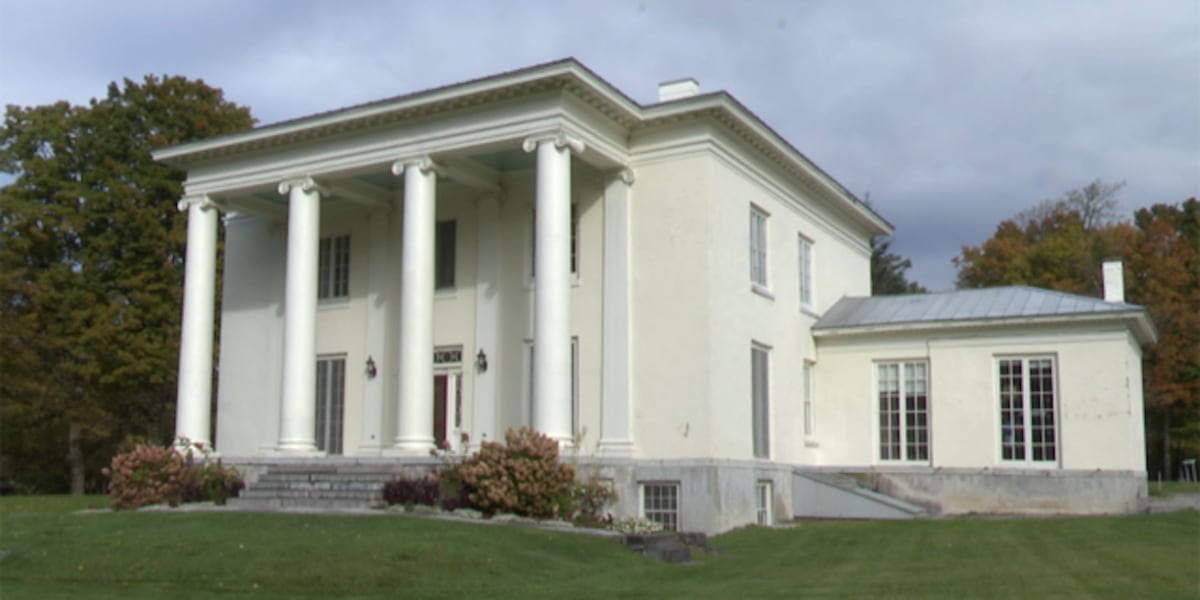FORT DRUM, New York (WWNY) – The north country as we know it can be largely attributed to a man named James LeRay.
Dr. Laurie Rush is Fort Drum’s archeologist and cultural resources manager.
“James LeRay was the son of Jacques Donatien Le Ray de Chaumont who negotiated the French alliance for the American Revolution with one of our founding fathers, Benjamin Franklin,” she said.
After the revolution, James LeRay came to America to develop hundreds of thousands of acres of land here in the north country.
With his wife and three children, Therese, Vincent, and Alexander, he established his estate in 1808.
Now it serves as the Cultural Resources Facility for Fort Drum, where sometimes unexplainable things happen. Lights turn on and off, doors open and close on their own, footsteps echo when nobody is around, and when anyone speaks about Rachel — an enslaved woman who cared for the LeRay family and home — something odd occurs.
“I will tell about Rachel and then the upstairs toilet will flush even though there’s nobody upstairs,” Rush said, “and one day I was discussing it with a plumber and he said, ‘Dr. Rush, toilets don’t flush themselves,’ and it flushed for us twice during the conversation, so something happens with the plumbing here and there it is flushing.”
Rachel is not the only assumed spirit at the estate. Baby Clotilde, LeRay’s granddaughter, is buried on the grounds and there have been reports of ghostly children at play.
“About 20 years ago,” Rush said, “the ladies were here and one brought a little boy along and he was running around and when it was time to go he said ‘aren’t you going to say goodbye to the kids?’ and she said, ‘what kids?’ and he said the ones I’ve been playing with all day, they’re on the stairs with their mommy.”
Plus, there may be some hard feelings that linger at the mansion. In 1936, Colonel Harold Remington purchased the estate. He and his wife poured their hearts into restoring the property with great effort and cost, just for the Army to take the home via eminent domain a few years later in order to establish what would become Fort Drum.
“It was a very tragic experience for the Remingtons,” Rush said, “especially because Col. Remington was a decorated artillery officer in World War I, so he served and believed in the Army, and there’s painful correspondence as he pleads with the Army not to take this estate away.”
Now, all these years later the home serves the community and honors its past inhabitants who, perhaps, aren’t as long departed as we think.
Copyright 2024 WWNY. All rights reserved.








